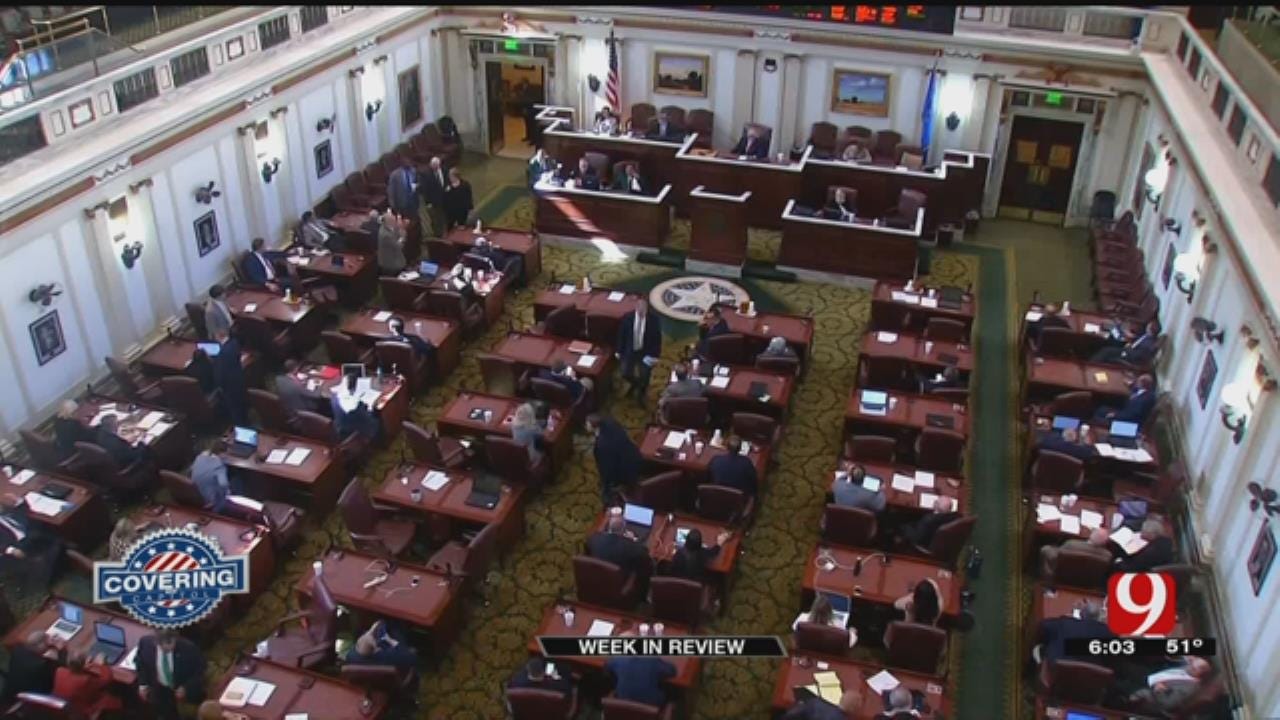State Legislature Special Session: Week In Review
<p>The state legislature ended the week with very little movement toward solving the budget crisis. And it costs taxpayers about $30,000 every time lawmakers gavel in for special session.</p>Friday, November 3rd 2017, 6:56 pm
The state legislature ended the week with very little movement toward solving the budget crisis. The clock is ticking and tens of thousands of Oklahomans could be impacted if lawmakers don’t reach an agreement soon.
This week, the House of Representatives passed a series of bills to bridge about 70percent of the state’s $215 million budget gap, knowing many of the measures would be shot down by the Senate and governor. Meanwhile, agencies say the neediest Oklahomans will see huge cuts.
“The agencies are telling our citizens that they’re going to cut their services to the most vulnerable,” said Representative John Bennett (R) District 2. “That’s...that’s terrorism. We should not be negotiating with terrorists, period.”
Bennett drew fire for that comment this week, but his point is agencies should be audited before taxes are raised to fund them. This week, the director of the Department of Health stepped down amid accusations of financial mismanagement that led to 250 layoffs. The agency is short about $30 million.
The House of Representatives passed a series of bills this week to take money from the Rainy Day Fund and revenues to pay for services. Representative Kevin Calvey (R) District 82 questioned the motives of leadership waiting till now to tap into reserves.
“That was just absolutely unconscionable," Calvey said. "To use people as hostages or a human shield in an effort to pressure us to vote for a tax increase. That’s what this was about. This could have been done day one.”
House Majority Leader Jon Echols (R) said, “What the house has passed so far between the cash, the Rainy Day money and the legacy wells, if all of the measures that the house took up so far were passed by the Senate and signed by the governor we have taken the $215 million hole and cut it down to $59 million.”
But the governor isn’t on board, especially with the state already facing a $400 million budget shortfall next year. “We can’t put our state in a deficit by draining all of our money out of all of our accounts and still leave a big hole and go home.”
Today, House leaders said, with the economy improving, the state should have enough to cover that. Besides, they say, we have to worry about now...now.
“I agree that we always must carefully plan for the future,” Echols said. “But I also agree that if your house is on fire you don’t withhold a bucket of water because it may be on fire a month from now.”
It costs taxpayers about $30,000 every time lawmakers gavel in for special session. A spokesman for the House Speaker says so far, this special session has cost taxpayers about $300,000.
More Like This
November 3rd, 2017
June 28th, 2024
Top Headlines
July 26th, 2024
July 26th, 2024











